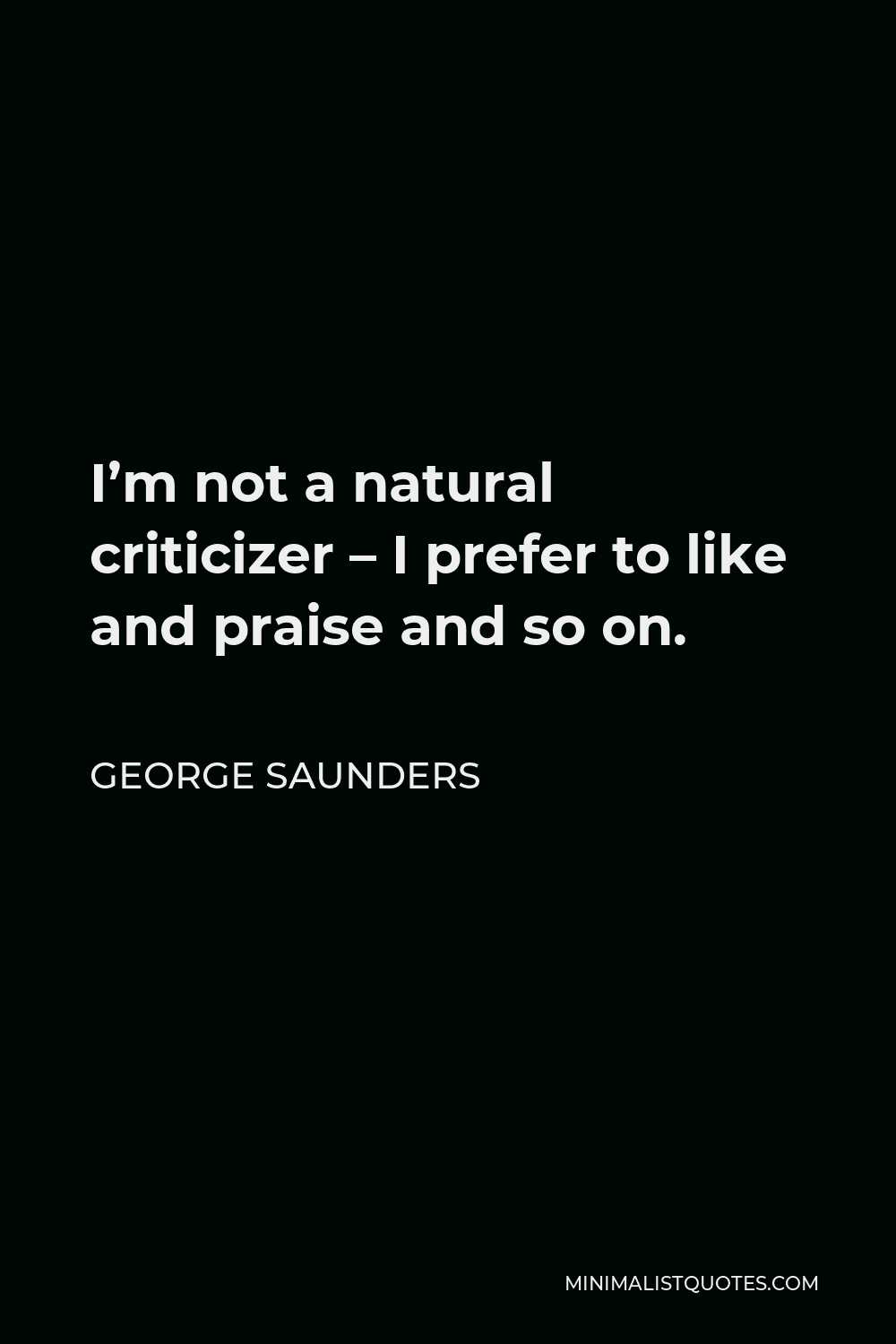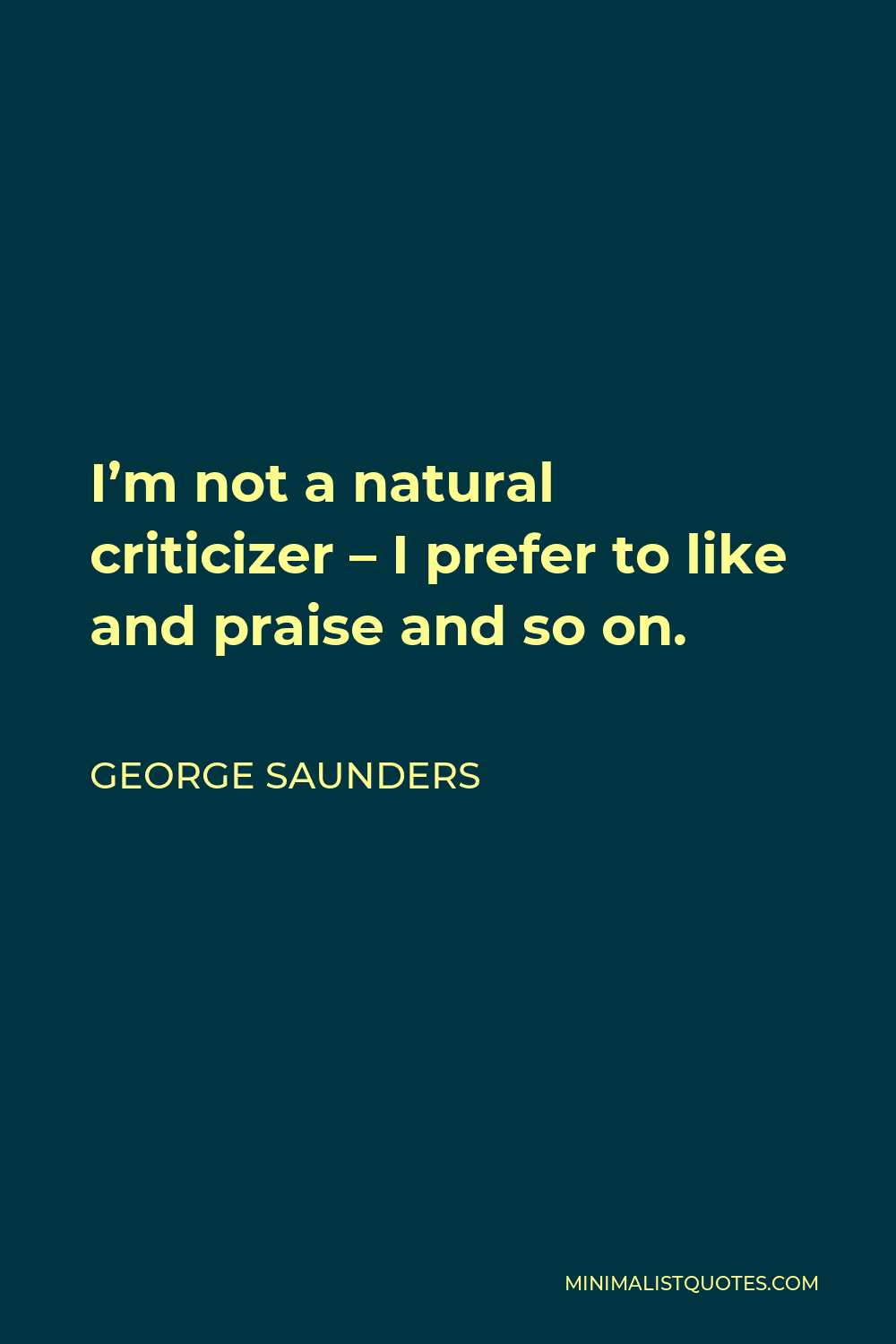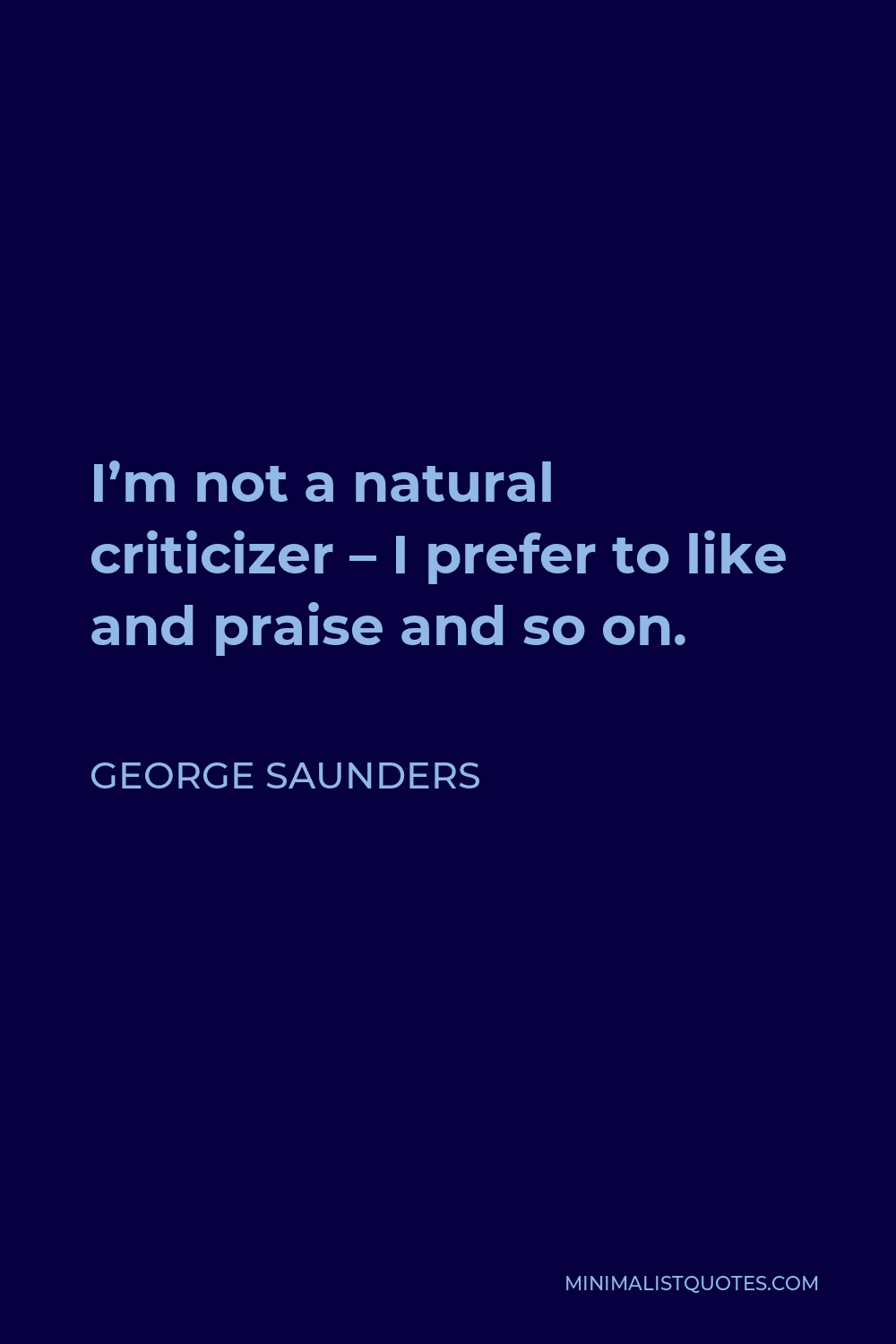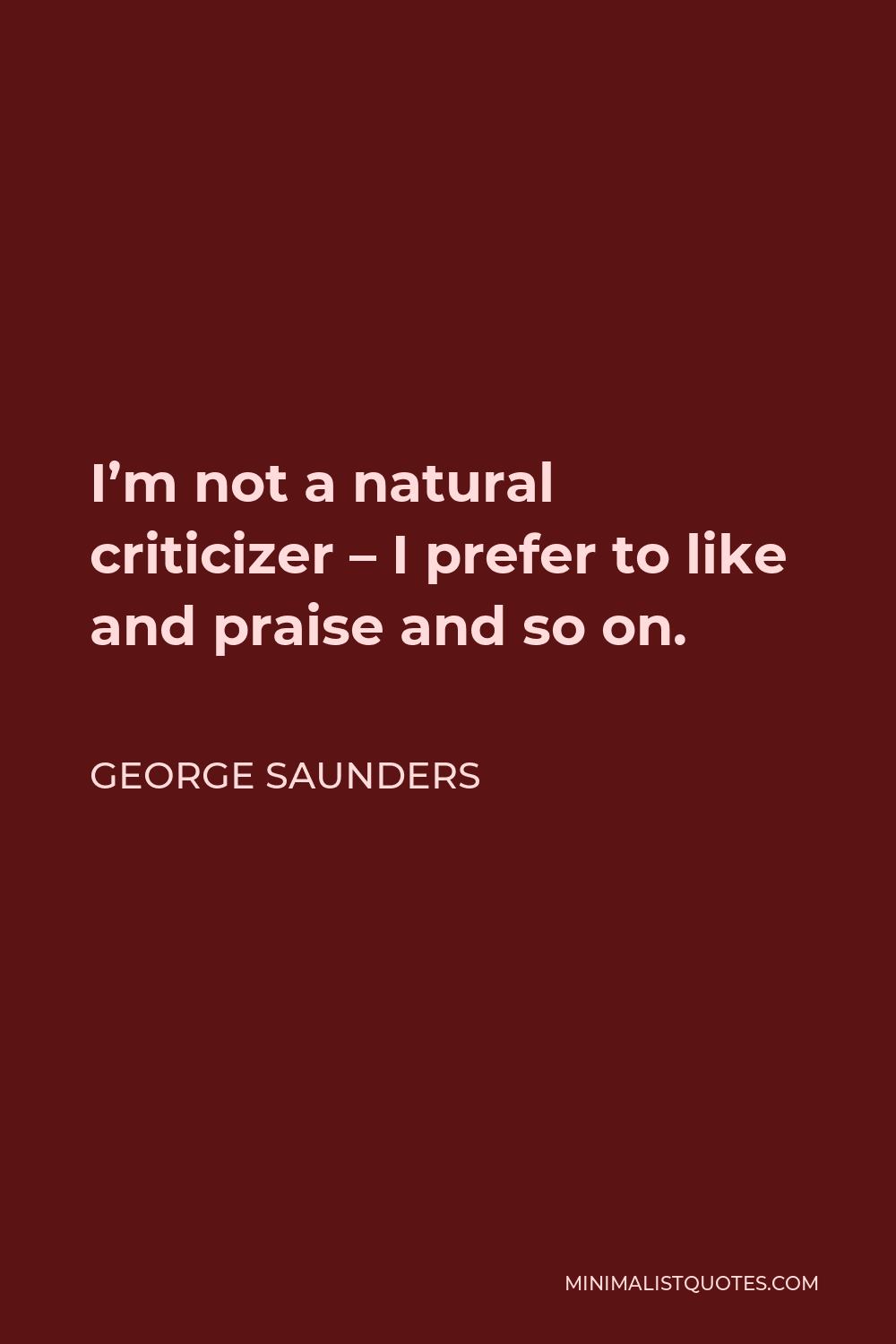Based on the experience of my life, which I have not exactly hit out of the park, I tend to agree with that thing about, If it’s not broke, don’t fix it. And would go even further to: Even if it is broke, leave it alone, you’ll probably make it worse.
GEORGE SAUNDERSI’m not a natural criticizer – I prefer to like and praise and so on.
More George Saunders Quotes
-






-





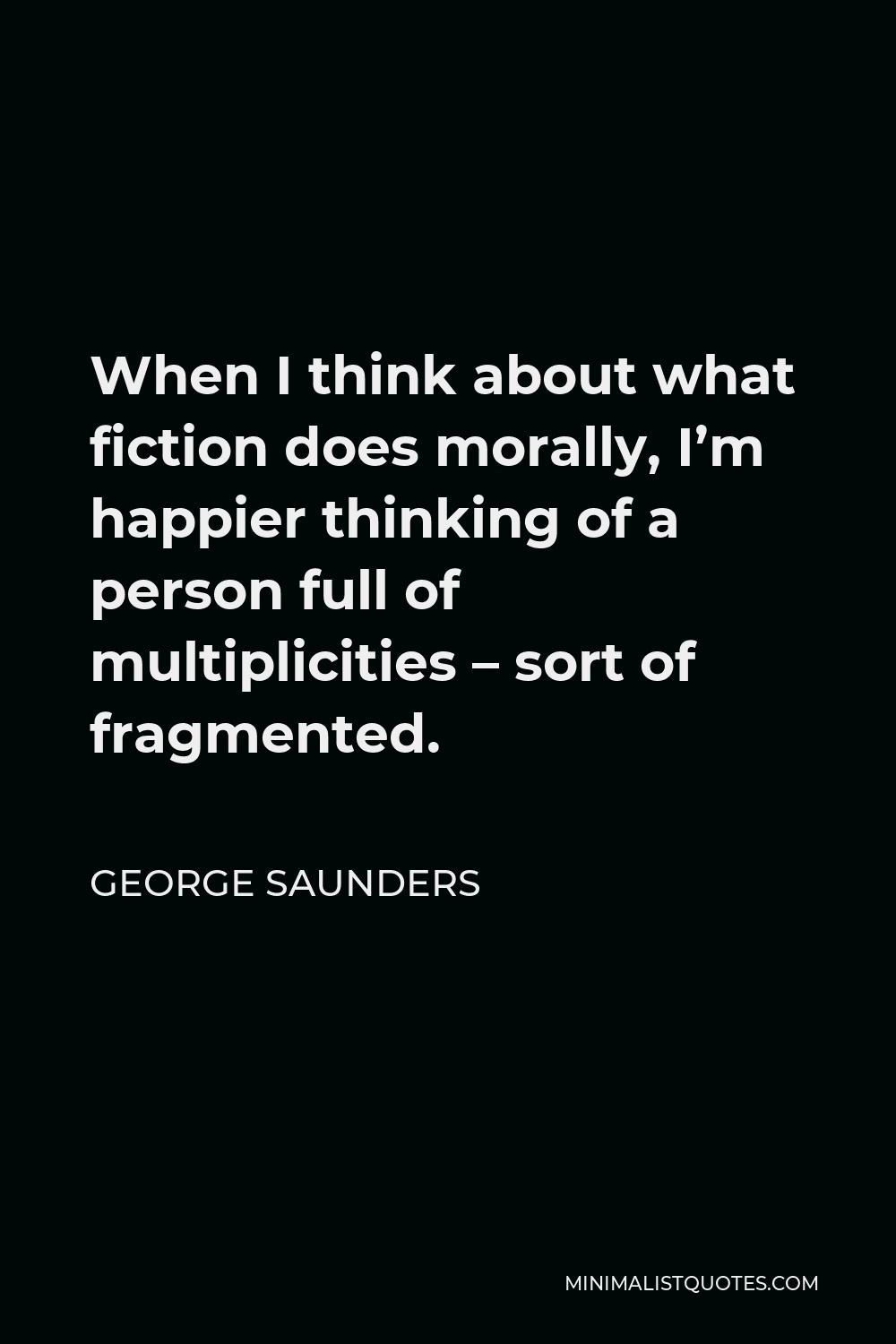
When I think about what fiction does morally, I’m happier thinking of a person full of multiplicities – sort of fragmented.
GEORGE SAUNDERS -





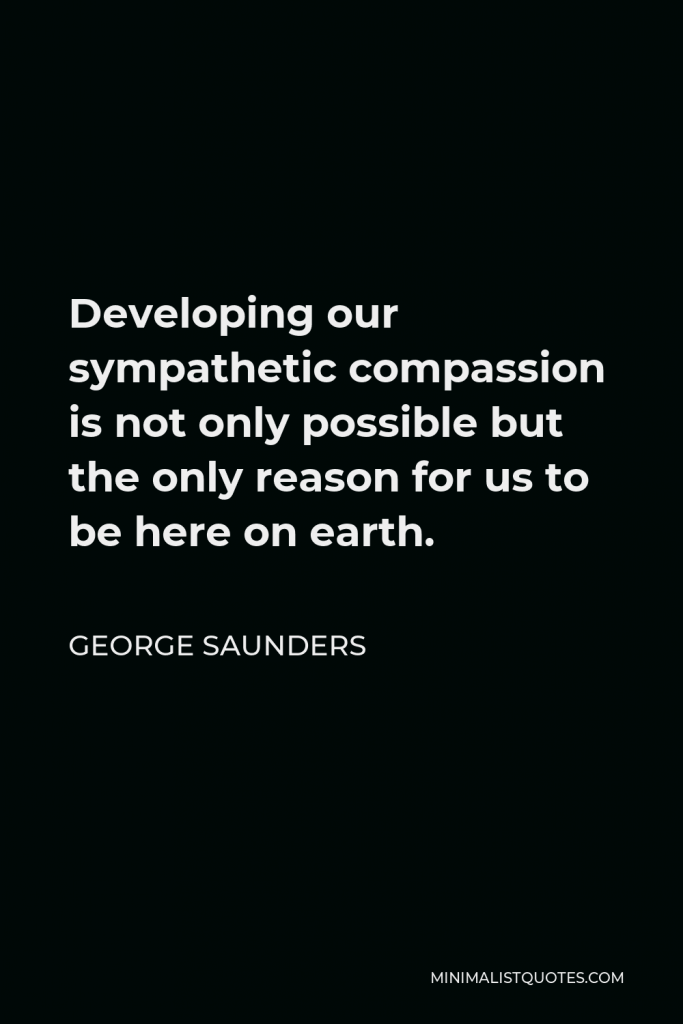

Developing our sympathetic compassion is not only possible but the only reason for us to be here on earth.
GEORGE SAUNDERS -





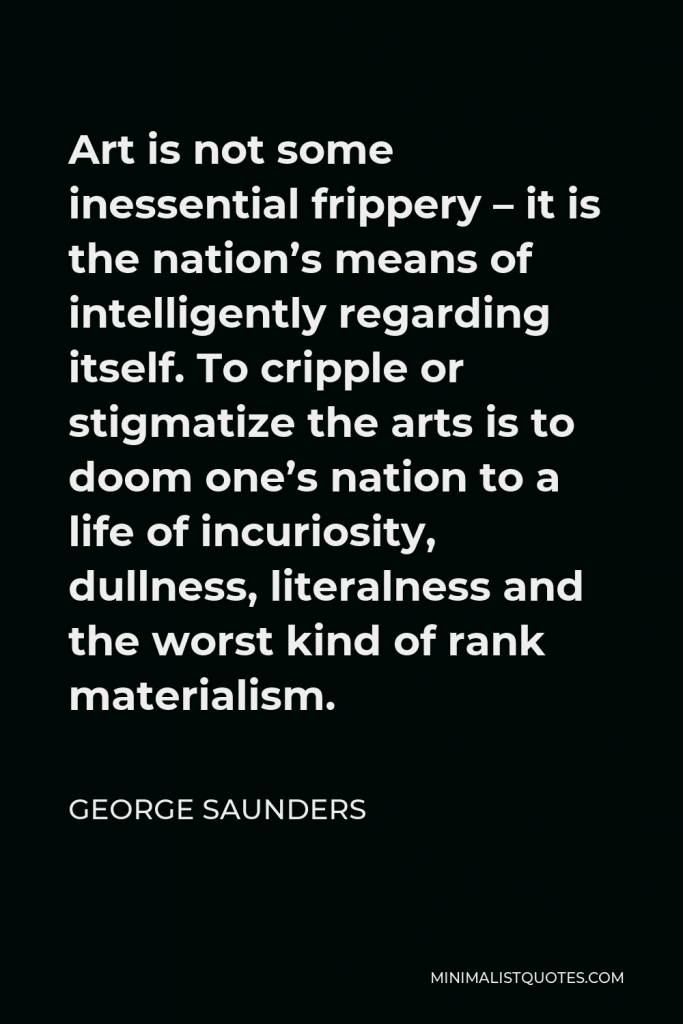

Art is not some inessential frippery – it is the nation’s means of intelligently regarding itself. To cripple or stigmatize the arts is to doom one’s nation to a life of incuriosity, dullness, literalness and the worst kind of rank materialism.
GEORGE SAUNDERS -





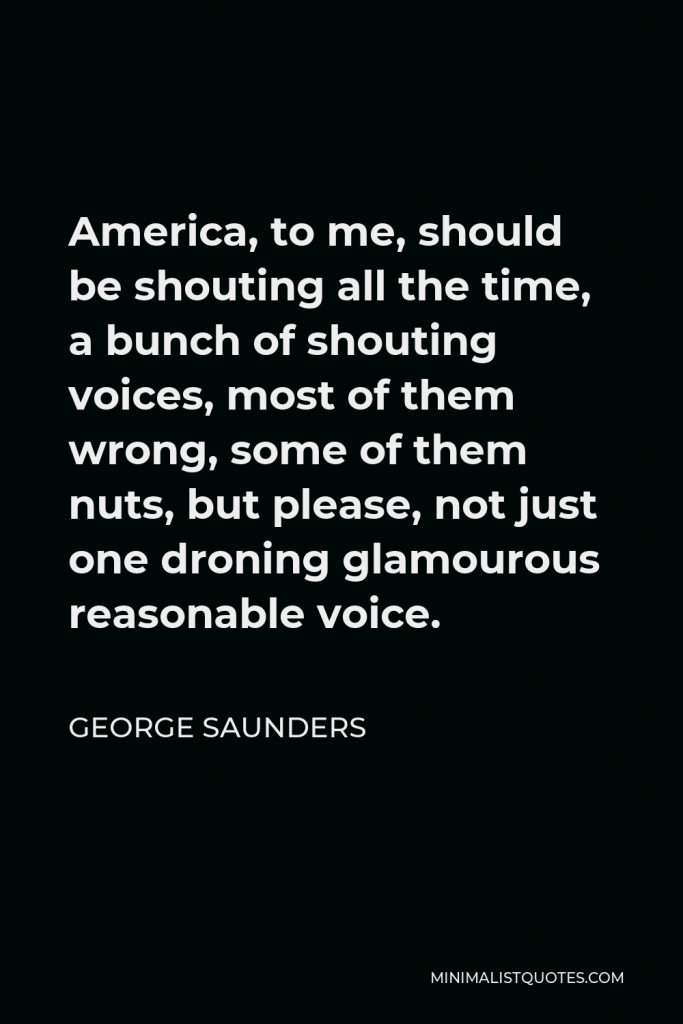

America, to me, should be shouting all the time, a bunch of shouting voices, most of them wrong, some of them nuts, but please, not just one droning glamourous reasonable voice.
GEORGE SAUNDERS -





![George Saunders Quote - As the writer of this book [Lincoln in the Bardo], what I loved was the feeling of having so many surprises come at the end that I hadn’t really planned or planted.](https://minimalistquotes.com/wp-content/uploads/2023/02/as-the-writer-of-this-book-lincoln-in-the-bardo-wh-683x1024.jpg)

As the writer of this book [Lincoln in the Bardo], what I loved was the feeling of having so many surprises come at the end that I hadn’t really planned or planted.
GEORGE SAUNDERS -






If you have a friend, what’s the best way you can experience her beauty? It’s to really accept her. She’s weird in this way,
GEORGE SAUNDERS -





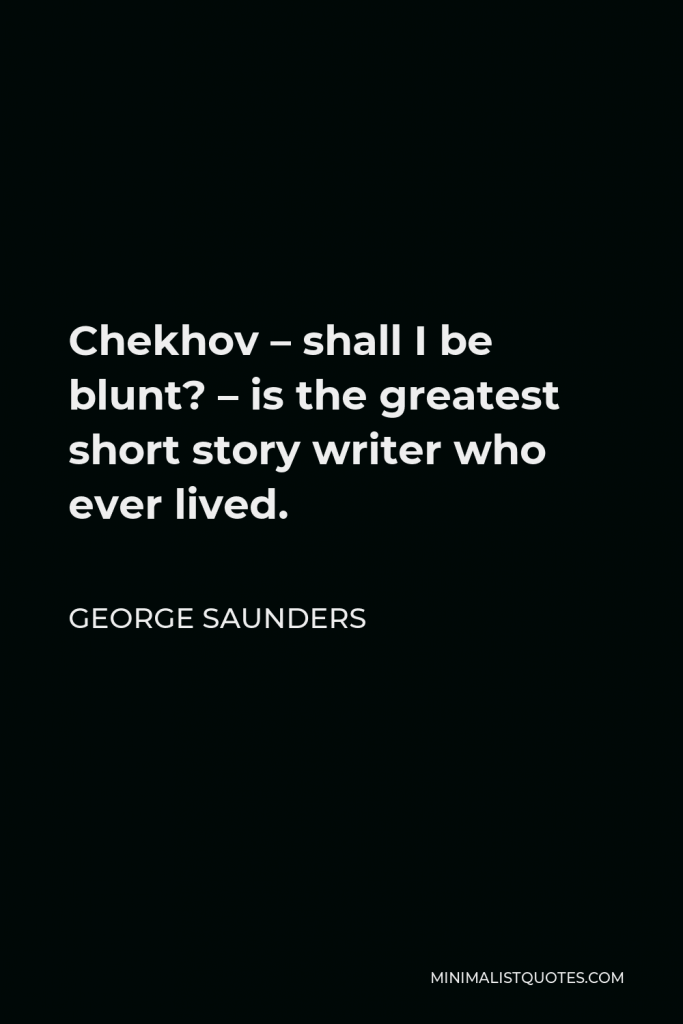

Chekhov – shall I be blunt? – is the greatest short story writer who ever lived.
GEORGE SAUNDERS -





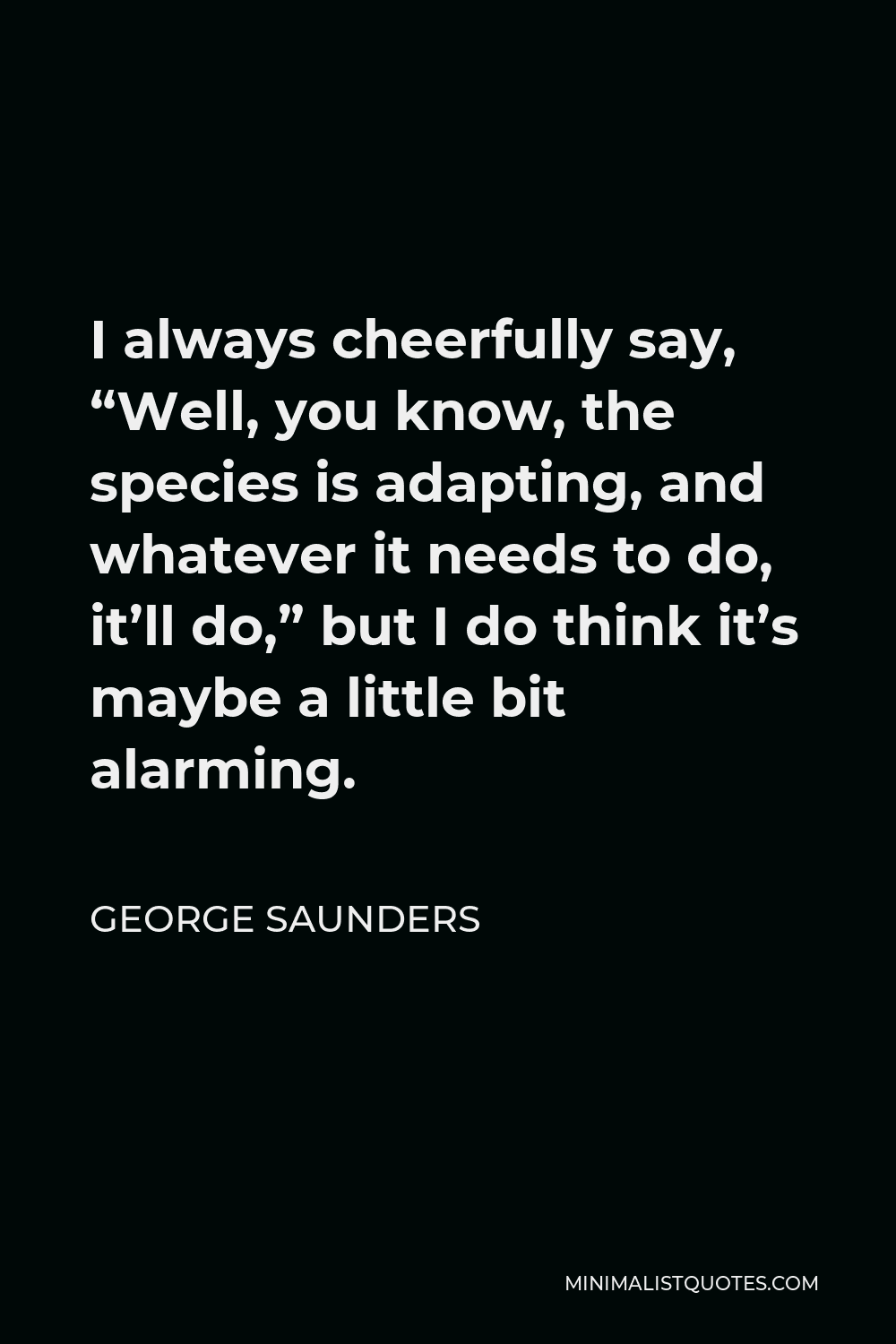
I always cheerfully say, “Well, you know, the species is adapting, and whatever it needs to do, it’ll do,” but I do think it’s maybe a little bit alarming.
GEORGE SAUNDERS -





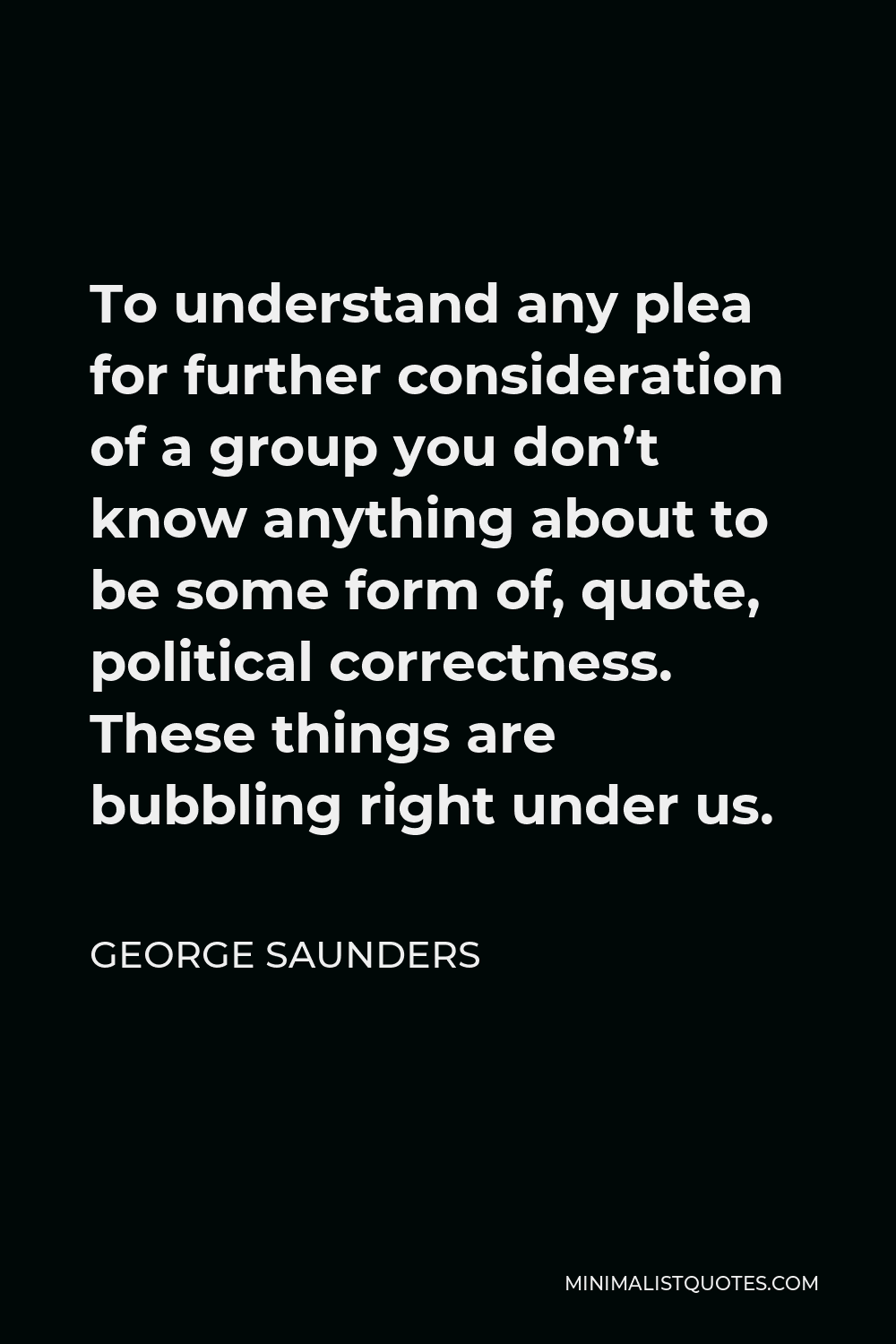
To understand any plea for further consideration of a group you don’t know anything about to be some form of, quote, political correctness. These things are bubbling right under us.
GEORGE SAUNDERS -





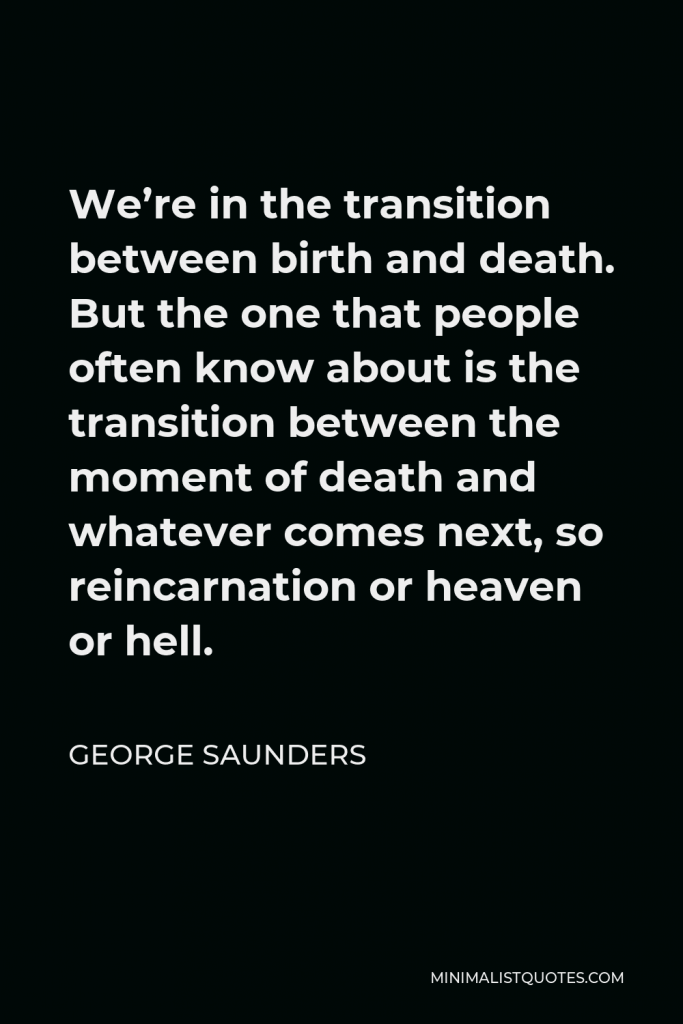

We’re in the transition between birth and death. But the one that people often know about is the transition between the moment of death and whatever comes next, so reincarnation or heaven or hell.
GEORGE SAUNDERS -





![George Saunders Quote - “Kindness” can mean a lot of different things. In this case, I felt I had to present his [Donald Trump’s] supporters in as fair a light as possible – many of them hadn’t been interviewed before and that entailed some interviewer-courtesy in the editing and so on.](https://minimalistquotes.com/images/kindness-can-mean-a-lot-of-different-things-in-thi.jpg)
“Kindness” can mean a lot of different things. In this case, I felt I had to present his [Donald Trump’s] supporters in as fair a light as possible – many of them hadn’t been interviewed before and that entailed some interviewer-courtesy in the editing and so on.
GEORGE SAUNDERS -







Nostalgia is, ‘Hey, remember the other mall that used to be there?’
GEORGE SAUNDERS -





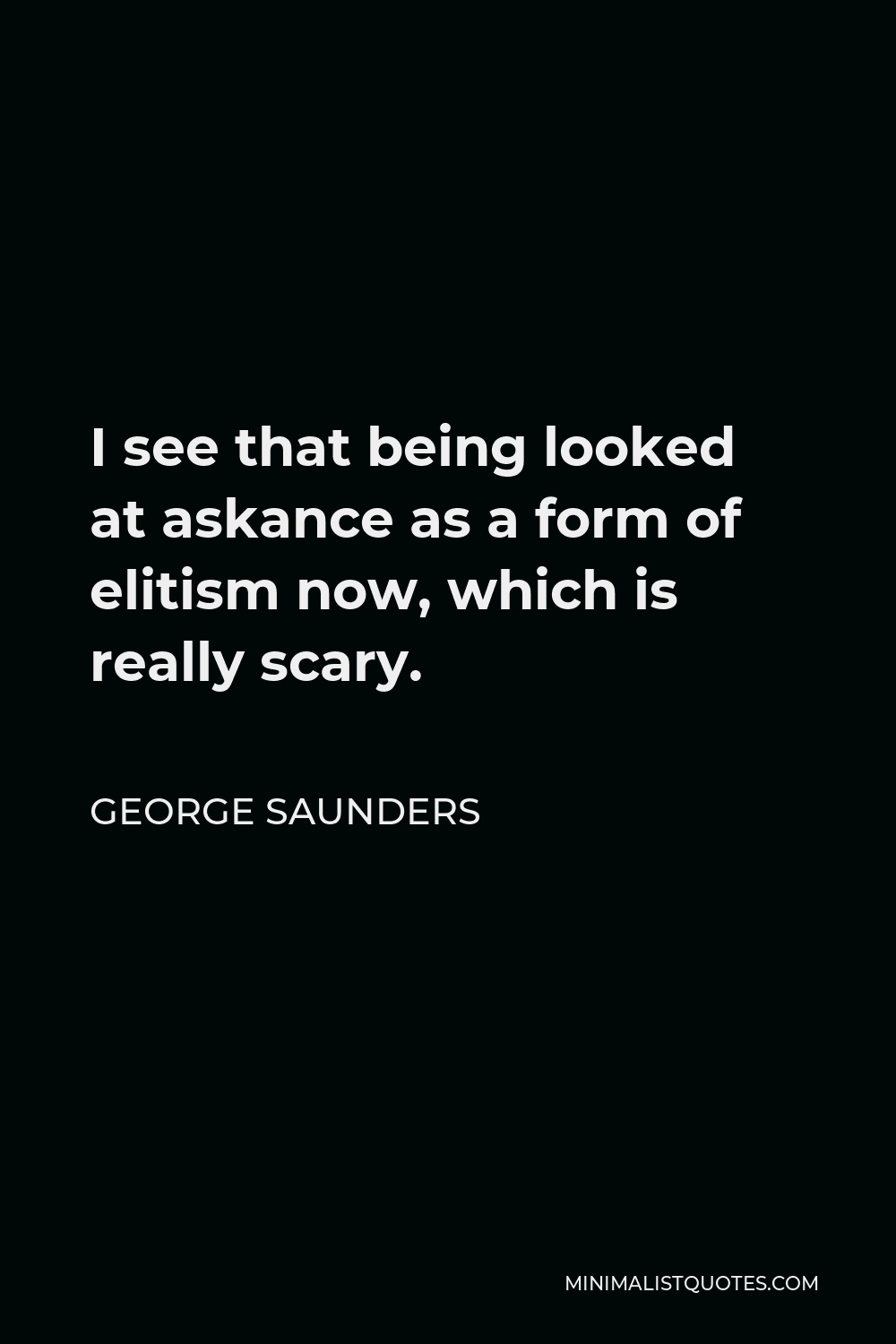
I see that being looked at askance as a form of elitism now, which is really scary.
GEORGE SAUNDERS -





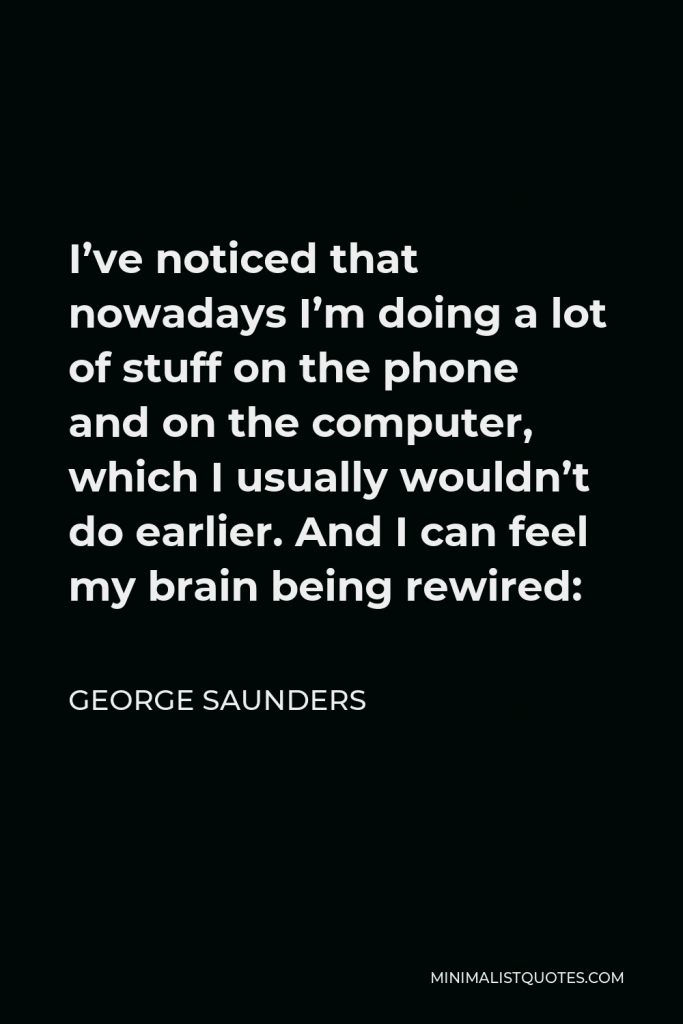

I’ve noticed that nowadays I’m doing a lot of stuff on the phone and on the computer, which I usually wouldn’t do earlier. And I can feel my brain being rewired:
GEORGE SAUNDERS -





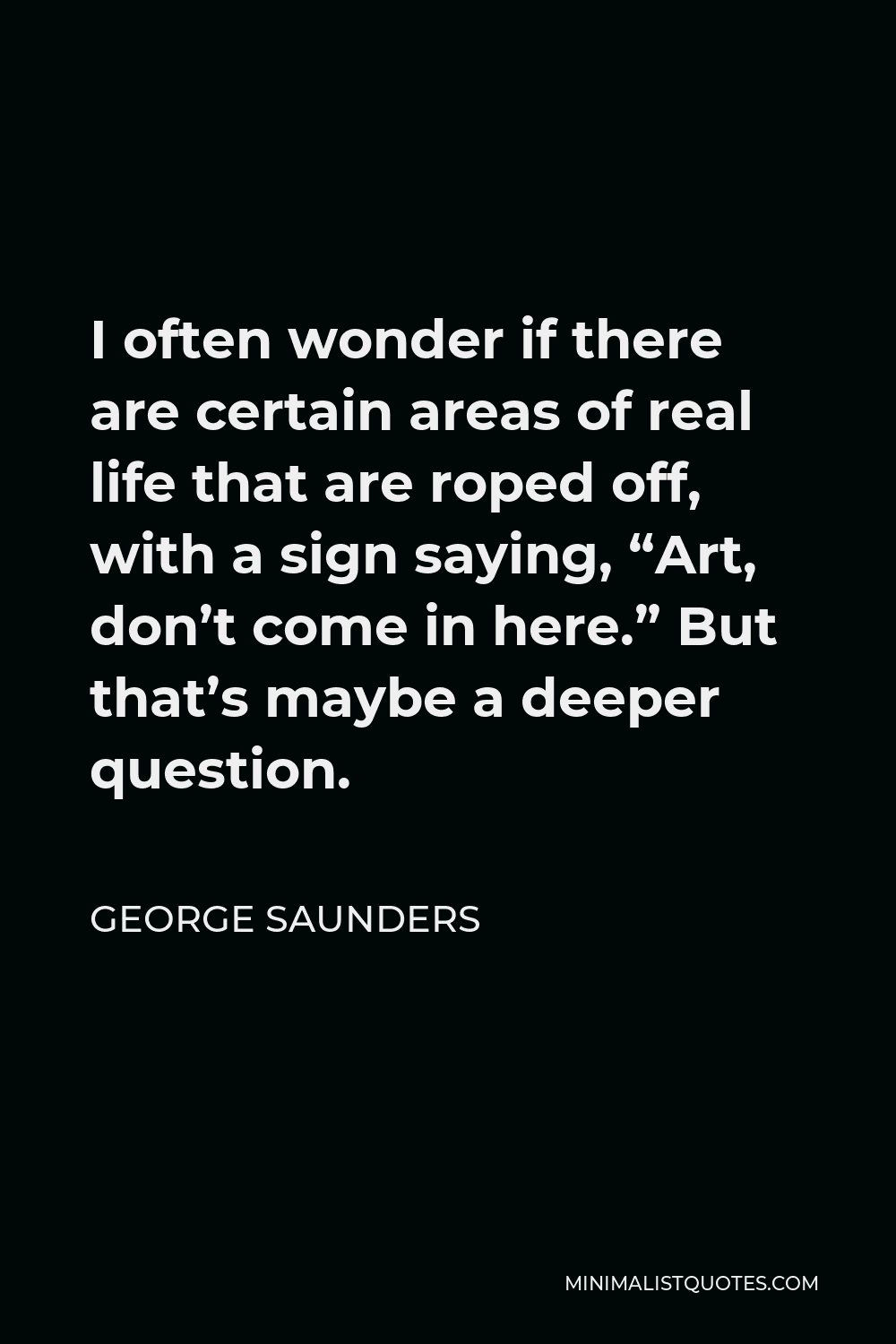
I often wonder if there are certain areas of real life that are roped off, with a sign saying, “Art, don’t come in here.” But that’s maybe a deeper question.
GEORGE SAUNDERS
